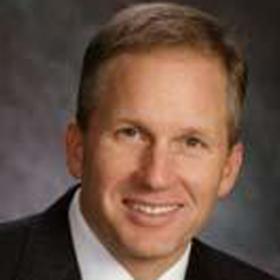
Financial Services and Industry Advance Undersea Cable Security
The EastWest Institute (EWI) on November 10 held its 12th meeting on the security of global digital transmissions. Hosted in New York by Goldman Sachs, the meeting reviewed key recommendations from the ongoing Reliability of Global Undersea Communications Cable Infrastructure (ROGUCCI) process.
EWI Chief Technology Officer and Distinguished Fellow Karl Rauscher presented recommendations from previous meetings, including detailed findings of the 2009 Global Summit on ROGUCCI held in collaboration with IEEE, the communications industry's leading publisher of peer-reviewed literature.
Thursday’s seminar, the first held in New York City and the first hosted by a major financial services industry stakeholder, discussed existing recommendations and pressed for further progress in key areas for private sector stakeholders, international information utilities, and governments.
Goldman Sachs Executive Vice President, Chief of Staff and Secretary to the Board John F.W. Rogers, who recently joined the EWI board, welcomed the meeting.
“I accepted the honor to join the leadership of the EastWest Institute, because it is always facilitating action, not just thinking and publishing,” Rogers said. “EWI is an unusual organization that does not seek credit for what it does but exists to effect change by turning dialogue into meaningful results.”
Among the other participants were seven distinguished discussants:
Andrew Bach, Senior Vice President of Network Services, NYSE Euronext
Douglas R. Burnett, International Cable Law Advisor, International Cable Protection Committee; Partner, Squire, Sanders & Dempsey LLP
Peter S. Cornell, Vice President, Global Network Field Operations, AT&T
Wayne Pacine, Interagency Project Analyst, Board of Governors of the United States Federal Reserve System
Ronald J. Rapp, Director, Industry and Marine Liaison, TE SubCom
Michael Sechrist, Project Manager, Explorations in Cyber International Relations, Harvard University
Philip J. Venables, Managing Director and CISO, Goldman Sachs
The discussants and a diverse group of attendees drawn from the ranks of engineers, cable laying companies, and organizations that depend on high reliability in Internet communications reviewed key recommendations of previous ROGUCCI meetings and listed new priorities for dependable communications.
In order to achieve security in undersea cable infrastructure, the global community must work together to ensure more resilient cable placement and faster response when something goes wrong.
The meeting’s emphases included: A focus on choke points such as the Strait of Malacca and the Suez Canal where numerous cables pass through small points, increasing the chance of multiple failures in certain kinds of incidents; the need for transparency in how the risk of interrupted or slowed service is calculated and communicated; the need for increased information access in the private sector to allow better risk assessments; a need for stakeholders to understand the challenges faced by operators and support the work of finding optimal solutions; and the need to address security of end-points for undersea cables, where they come ashore and meet terrestrial networks.
With the vast majority of international Internet traffic traveling through undersea cables, the importance of continued service and low latency (transit time for information) is clear for both public and private organizations.
The private sector’s role, however, is extremely important. The financial services industry, one seminar participant noted, has done the world a service by beginning the measure the value of consistent and fast communications. The quality and location of the Internet’s infrastructure, also built and maintained predominantly by the private sector, is what determines the availability of this vital service.
Seminar participants said increased cooperation among private sector organizations and governments can accelerate the repair process when something goes wrong at sea. Now, some jurisdictions take days to approve a repair mission, costing operators and their stakeholders time and money. With greater cooperation and international policy streamlining, repairs could take place much more quickly.
The ROGUCCI program will continue with further meetings to be announced and in coordination with EWI’s Worldwide Cybersecurity Initiative, which holds its third annual summit in New Delhi Oct. 30 and 31, 2012.
Some of the ROGUCCI recommendations are detailed in a 2010 IEEE-ROGUCCI report authored by EWI’s Rauscher, who is also a Bell Labs fellow. Read the full report at http://www.ieee-rogucci.org.

